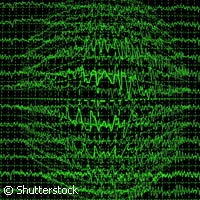Scientists find brain waves can predict epileptic seizures
Scientists from the Bernstein Center at the University in Freiburg in Germany have taken a step forward in the quest to predict epileptic seizures by monitoring the pre-seizure changes in sufferers' brains. The research study was funded in part by the EPILEPSIAE ('Evolving platform for improving living expectation of patients suffering from Ictal events') project, which received nearly EUR 3 million under the 'Information and communication technologies' (ICT) Theme of the EU's Seventh Framework Programme (FP7). The research was recently published in the journal Epilepsia. Epilepsy is one of the most common serious brain disorders that affects about 1% of the world population. In Europe, nearly 6 million people suffer from this disorder and 15 million are expected to be diagnosed with epilepsy at some point in their lives. The most disabling symptom of the disease is the apparently unforeseen occurrence of epileptic seizures. A seizure is a transitory disturbance in the electrical activity of the brain, producing a sudden electrical overload. It affects the brain's normal functions and produces changes in a person's movement, behaviour or consciousness. Professor Jens Timmer, a physicist at the Freiburg Institute for Advanced Studies (FRIAS), explained that 'in recent years, several methods have been developed to calculate predictive features from the electroencephalogram, which measures brain waves'. However, for individual prediction methods no satisfactory performances had been observed before this study. The researchers set out to examine whether a combination of different prediction methods could help improve prediction performances. They agreed that a warning would only be given if two methods triggered alarms during a short interval of time. Professor Andreas Schulze-Bonhage, head of the Epilepsy Center at the University Hospital Freiburg, said the research was important as 'unfortunately, a considerable fraction of all epilepsy patients do not respond well to commonly used pharmaceuticals'. These patients would benefit greatly from 'an automatic prediction of their suddenly occurring seizures' as it would enable them to 'prepare for the epileptic attack, for example by taking fast-acting medicine'. They would then be empowered to take action to preserve themselves from injury situations and social exposition, according to him. The study was based on electroencephalogram (EEG) results measured directly at the cortex from eight patients. The scientists found that on average for all patients, a combination of methods yielded an increase in prediction performance by more than 50%. 'In our study, about every second seizure could be predicted correctly,' Hinnerk Feldwisch-Drentrup from the Bernstein Center said, admitting however that the results from this study alone were not enough for the technique to be applied in real situations. 'While it is better than a random prediction, in the current state it seems not just yet to be sufficient for real clinical applications,' he added. In order to investigate further possible improvements, the scientists together with partners in France and Portugal have compiled an extensive database of EEG recordings from 200 patients to study real-time applications of their methods in the near future.
Countries
Germany



